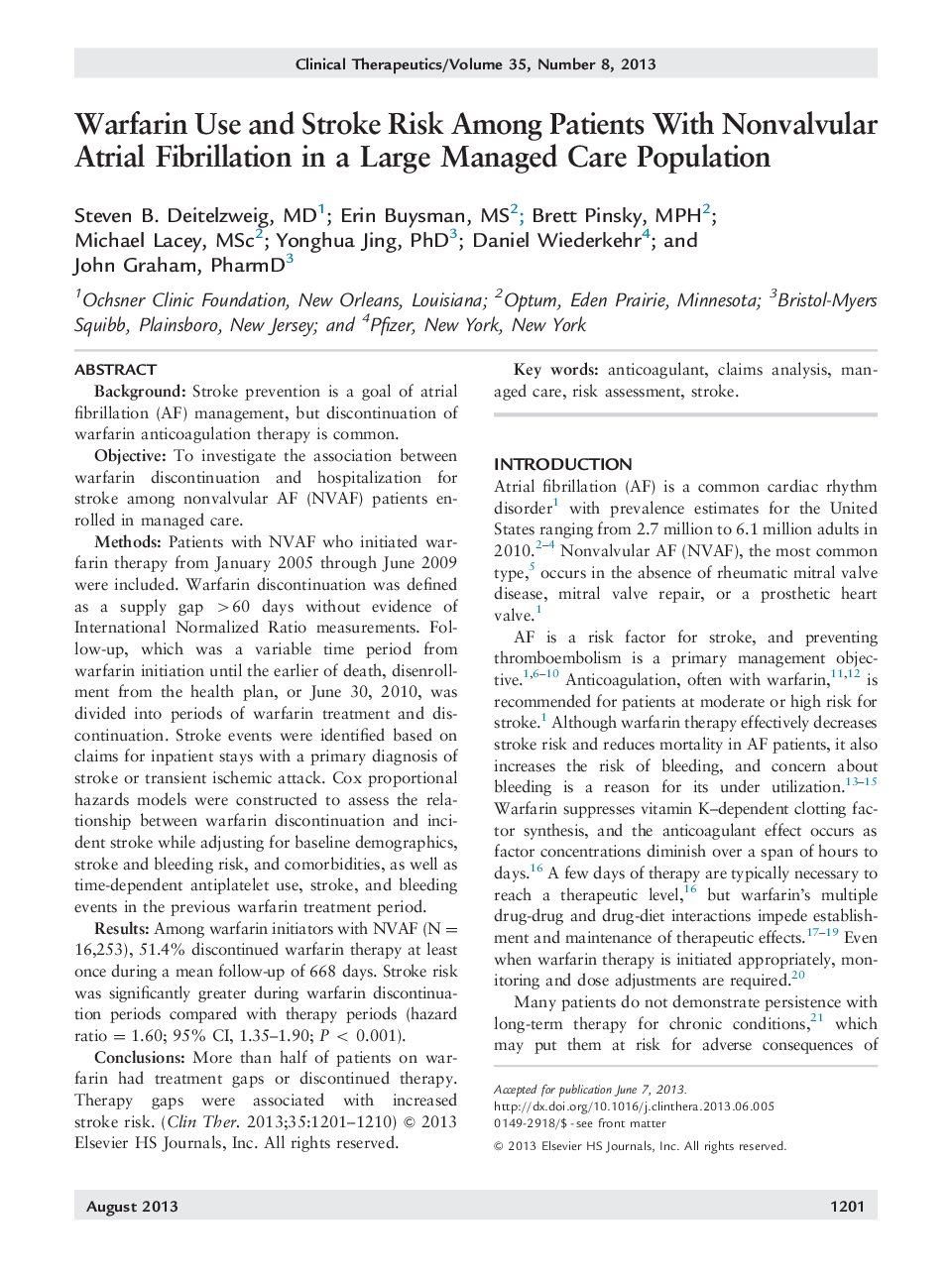| Article ID | Journal | Published Year | Pages | File Type |
|---|---|---|---|---|
| 2527134 | Clinical Therapeutics | 2013 | 10 Pages |
ABSTRACTBackgroundStroke prevention is a goal of atrial fibrillation (AF) management, but discontinuation of warfarin anticoagulation therapy is common.ObjectiveTo investigate the association between warfarin discontinuation and hospitalization for stroke among nonvalvular AF (NVAF) patients enrolled in managed care.MethodsPatients with NVAF who initiated warfarin therapy from January 2005 through June 2009 were included. Warfarin discontinuation was defined as a supply gap >60 days without evidence of International Normalized Ratio measurements. Follow-up, which was a variable time period from warfarin initiation until the earlier of death, disenrollment from the health plan, or June 30, 2010, was divided into periods of warfarin treatment and discontinuation. Stroke events were identified based on claims for inpatient stays with a primary diagnosis of stroke or transient ischemic attack. Cox proportional hazards models were constructed to assess the relationship between warfarin discontinuation and incident stroke while adjusting for baseline demographics, stroke and bleeding risk, and comorbidities, as well as time-dependent antiplatelet use, stroke, and bleeding events in the previous warfarin treatment period.ResultsAmong warfarin initiators with NVAF (N = 16,253), 51.4% discontinued warfarin therapy at least once during a mean follow-up of 668 days. Stroke risk was significantly greater during warfarin discontinuation periods compared with therapy periods (hazard ratio = 1.60; 95% CI, 1.35–1.90; P < 0.001).ConclusionsMore than half of patients on warfarin had treatment gaps or discontinued therapy. Therapy gaps were associated with increased stroke risk.
